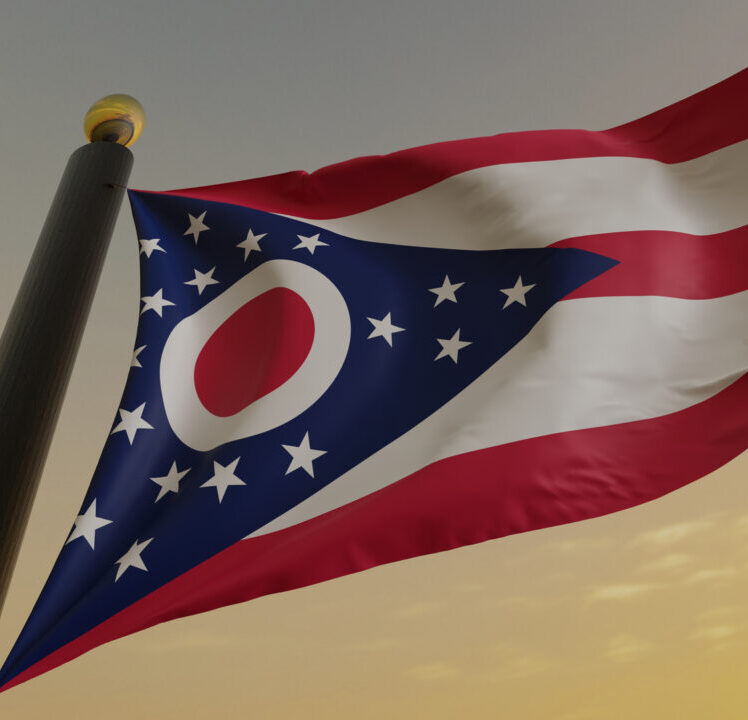Ohio's Industry Shake-Up
WASHINGTON — Prediction market platform Kalshi has filed a federal lawsuit against the Ohio Casino Control Commission (OCCC) and the Ohio Attorney General’s Office, intensifying a growing national dispute over whether event-based trading constitutes illegal sports betting.
The lawsuit, filed this week in the U.S. District Court for the Southern District of Ohio, challenges Ohio regulators’ cease-and-desist order issued earlier this year. The OCCC had ordered Kalshi to halt operations in the state, asserting that its “event contracts” — financial wagers tied to real-world outcomes such as sports results — amounted to unlicensed gambling. In August, the agency also warned sportsbooks not to offer similar products.
Kalshi’s complaint seeks a preliminary injunction preventing Ohio from enforcing its gaming laws on the platform, arguing that its operations are federally regulated by the Commodity Futures Trading Commission (CFTC) and therefore preempt state gambling oversight. “Ohio’s attempt to regulate Kalshi intrudes upon the federal regulatory framework that Congress established for regulating derivatives on designated exchanges,” the company said in its filing. “The state’s efforts to regulate Kalshi are both field-preempted and conflict-preempted.”
Legal and Regulatory Collision
At the heart of these cases lies a key legal question: whether event contracts — wagers on outcomes like sports, weather, or elections — fall under the federal definition of futures contracts, which are permitted under CFTC supervision, or under state definitions of gambling, which are more tightly controlled. During the Global Gaming Expo (G2E) in Las Vegas this week, industry and legal experts highlighted the mounting tension over prediction markets.
Kevin King, a partner at Covington & Burling LLP, described the issue as one of “preemption, procedure, and patience,” noting that the courts will ultimately decide whether federal oversight supersedes state and tribal authority. “We’re probably in the first quarter of action in those cases,” King said, referring to the more than a dozen lawsuits now in progress. State gaming agencies have increasingly sought to limit or ban prediction markets, arguing that they bypass consumer protection and integrity standards.
Dustin Gouker, owner of Closing Line Consulting, told the G2E audience that while the concept resembles sports betting, the legal classification remains uncertain. “Common sense would suggest Congress didn’t mean for sports betting to be legal in 50 states,” he said. “But we’re going to spend the next two or three years in court finding out.” Several regulators have raised concerns that prediction markets create a “backdoor” to unregulated sports betting. In a letter to Pennsylvania’s congressional delegation, Kevin O’Toole, executive director of the Pennsylvania Gaming Control Board, warned that platforms such as Kalshi “effectively create a parallel system operating outside of state oversight.”
Other states have followed suit. This year, Michigan, Arizona, and Massachusetts have each issued warnings or initiated enforcement actions. Arizona Department of Gaming Director Jackie Johnson said prediction markets “ignore state policy” and undermine consumer protections built into the regulated gaming system.
“We have this comprehensive framework of how gaming works in Arizona,” Johnson said. “Prediction markets are essentially ignoring it.” The growing friction has drawn attention from Congress and federal regulators. Earlier this year, U.S. Senators Catherine Cortez Masto (D-NV) and John Curtis (R-UT) led a bipartisan letter to the CFTC accusing prediction markets of circumventing state gambling laws. “Using event contracts that facilitate sports betting illegally circumvents the authority of state and local governments,” Cortez Masto told The New York Times.
Under the Biden administration, the CFTC has sought to restrict certain types of event contracts, including those tied to elections and sports outcomes. A federal court, however, overturned the agency’s attempt to block Kalshi’s election contracts last October, allowing the platform to host more than $700 million in wagers during the 2024 U.S. presidential race.
Kalshi’s political and regulatory connections have also drawn scrutiny. In January, the company appointed Donald Trump Jr. as a strategic adviser, shortly before it expanded into sports event contracts. Meanwhile, turnover at the CFTC has left Acting Chairwoman Caroline Pham as the lone commissioner after a series of resignations and a withdrawn nomination under former President Trump.
Former CFTC Commissioner Kristin Johnson, in her farewell remarks last month, warned that the prediction market industry is evolving faster than the regulatory structure governing it. “There are too few guardrails,” she said, calling for clearer federal oversight.
Kalshi’s lawsuit against the Ohio Casino Control Commission marks a pivotal moment in the national debate over whether federally regulated prediction markets are legal financial instruments or unlicensed sports betting under state law.
What’s Next
The Ohio case could become a key test of the limits of state authority over federally registered trading platforms. If Kalshi prevails, it may strengthen the company’s claim that prediction markets fall squarely under CFTC jurisdiction, potentially reshaping the U.S. sports wagering landscape. For now, industry observers say the courts — not regulators — will determine whether prediction markets remain a novel financial instrument or are ultimately classified as gambling. “It’s going to be a long fight,” Gouker said. “And we’re still just at the beginning.”








